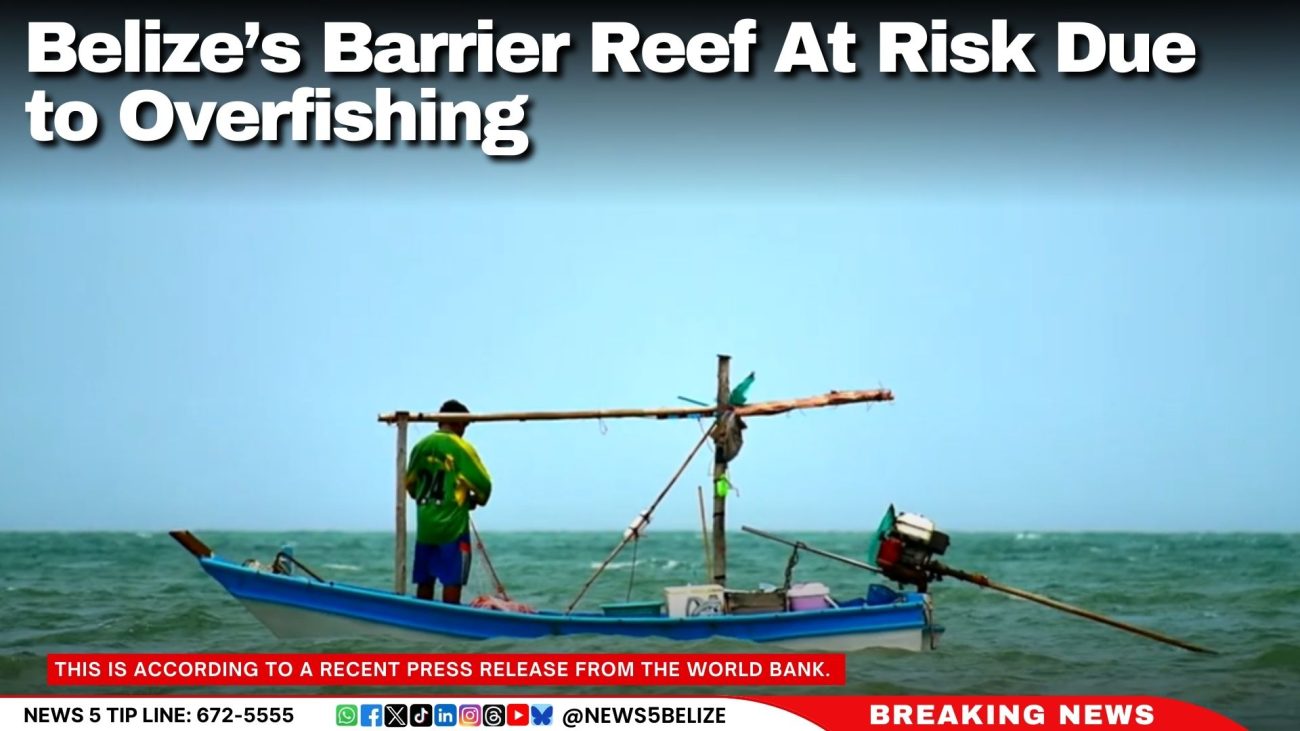Belize’s Barrier Reef At Risk Due to Overfishing
Belize’s world-famous barrier reef, the largest in the northern hemisphere, is at risk due to overfishing, habitat destruction, and pollution. This is according to a recent press release from the World Bank.
Once rated as “fair,” the reef’s health has now declined to “poor,” threatening marine biodiversity and the country’s economy, which relies heavily on tourism and fisheries. In response, the World Bank has approved a $32.23 million project to help Belize protect its marine resources while advancing its blue economy.
Uncontrolled coastal development, pollution from untreated sewage, and rising sea temperatures are further endangering the fragile reef ecosystem, according to the statement. It added that over 50% of Belizeans depend on fisheries and agriculture, making them highly vulnerable to environmental degradation. At the same time, only 18% of the population has access to proper sanitation systems, leading to excessive nutrient runoff that fuels harmful algae growth and depletes oxygen levels in the water, damaging coral reefs.
“The new Belize Blue Cities and Beyond Project will address these challenges through strategic policy and infrastructure interventions. The project will focus on creating national geospatial and spatial planning systems and policies that integrate ecological urban planning and nature-based solutions. This includes developing comprehensive water quality control strategies, a national sanitation master plan, and sustainable fisheries and other blue asset monitoring policies to support the sustainable development of Belize’s coastal communities and blue economy. The project will also prioritize and develop proposals for future critical urban investments to promote sustainable coastal and blue economy development under a changing climate, in critical urban areas, including in Belize City, Ambergris Caye, and Punta Gorda.”
The project will upgrade Belize City’s wastewater treatment plant, expand water access in South San Pedro, and introduce a waste management pilot to reduce waste and promote recycling. Additionally, it will establish a carbon market system to regulate transactions and create high-quality carbon credits for international sale, unlocking sustainable financing for the blue economy. The initiative will also provide training for local governments, NGOs, women, and youth-led businesses in climate-resilient planning and inclusive marine resource management.
The project is backed by $23.5 million from the World Bank’s International Development Association, with additional grants from the Global Environment Facility ($3.76 million), the PROBLUE Trust Fund ($4 million), and the Global Facility for Disaster Reduction and Recovery ($0.96 million).
Related stories:
Will the Sea Cucumber Industry Sink or Swim? A Look at Its Future Amidst Overfishing Concerns
Rushed Conservation: Is Belize’s Blue Bonds Deal Sacrificing Fishermen for Global Praise?







Facebook Comments